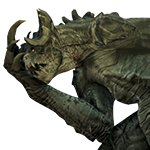I would just make the following amendments:
Character-Skill-Based (player chooses character’s action, but success of character’s actions depends on statistics and the game system, not the action of the player)
IMO this is an incorrect view as it takes away too much control away from the player and it's logical conclusion would be to make most, if not all, actions dependant on mathematical abstractions
"So, you're about to land the finishing blow on this gruelling final boss? Oh, you want to move to that spot to get a better tactical positioning? Ups sorry, your PC got the 1% critical failure and slipped on a banana peel and broke his spine. Fuck you, try again eheheheheheheheh."
At that point what we have is more a game of roulette than one about decision making
No, what character properties such as Stats, Skills and the like should primarly do is limit and expand the character's capabilities
It's what properties the player chooses to invest and more importantly how he chooses to use them that should be what most determine the scope of his success/failure
A pure warrior shouldn't be able to tackle stealth challenges, not because the gods of RNG don't favor his sneaking endeavours, but for the simple fact he isn't trained in stealth
You can have actions whose success are dependant on odds influenced by mathmetical properties, but those should be the minority not the majority
This also means, that yes ARPGs are RPGs
in real-time games at least a pause function
No
I agree with your point on Deliberation, but not this segment
This fundamentally goes against the point of real-time, to pressure the player to make a decision in a limited amount of time
Randomness (dice-rolls or something else to remove determinism)
This is entirely optional
It can enchance the experience, but shouldn't be a mandatory element
Dungeons (a mythic underworld to explore; many RPGs have only a dungeon without an overworld, but it is more difficult to be an RPG with an overworld but no dungeons)
I would replace this with "Quests"
Quests being a series of gameplay challenges linked by a narrative or thematic thread
Dungeons is too restrictive to be such a defining element of an RPG, while Quests include both Dungeons and a variety of other Activities
That's all
I would say if a videogame is an RPG if it contains those elements or almost all of them
In fact, I think the reason this as always been such a contentious topic is because "RPGness" in videogames is basically a spectrum of qualities - that's why some games are more evident as RPGs than others
Also I feel I should point that I am talking about Role Playing Videogames and not Tabletop, so don't @ me if you don't think these fit into the definition of the latter - as I've already said they're divergent at their core, despite their similarities and historical ties















